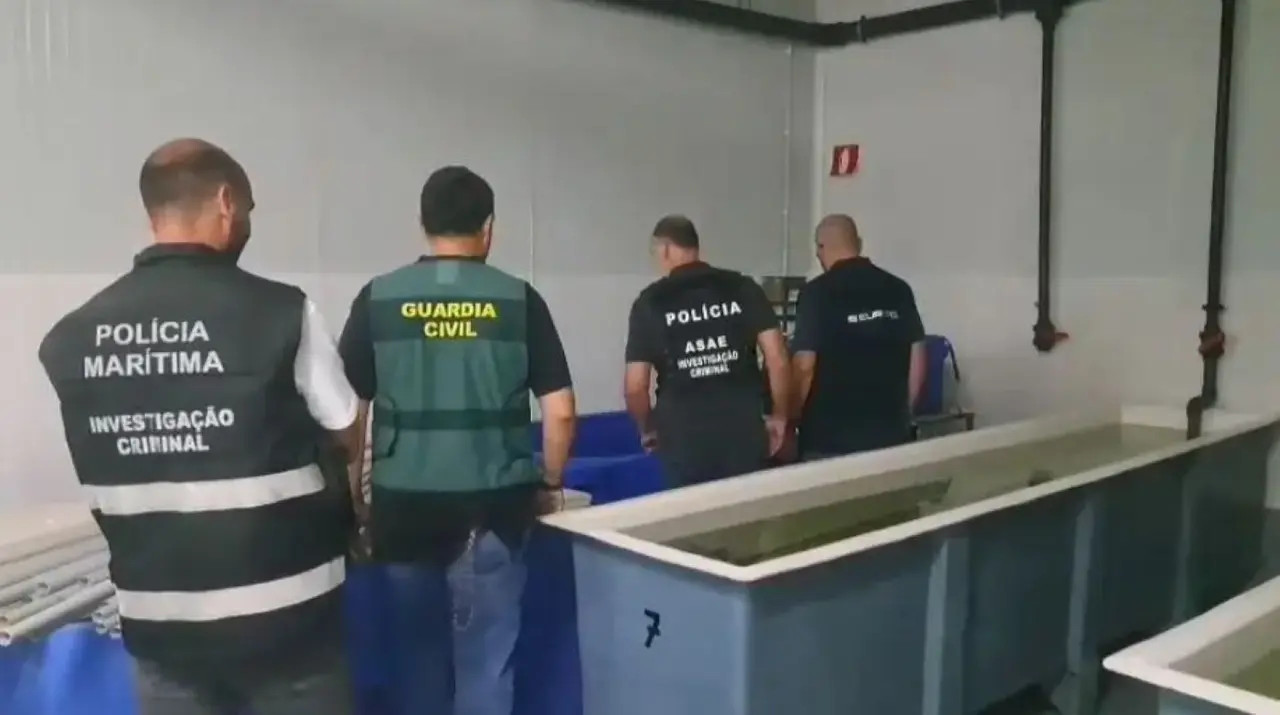Illegal Fishing Operations Exposed
Every year, millions flock to the popular tourist spots of the Iberian Peninsula, drawn in by the tempting culinary offerings. However, authorities in Spain and Portugal are cracking down on criminal gangs aiming to introduce contaminated clams into the restaurant industry. The stakes are high, and the risks serious, as illegal fishing poses not just a threat to the health of consumers but also significant repercussions on logistics and the seafood supply chain.
Authorities Crack Down
The Nature Protection Service of the Civil Guard, along with the Economic and Food Safety Authority of Portugal and the Maritime Police, have successfully apprehended a total of 11 individuals believed to be part of this illicit trade. This operation has revealed alarming figures: profits could exceed €1.6 million annually from this illegal activity, with over seven tons of Japanese clams seized during two significant operations.
Health Risks from Contaminated Clams
The illegal harvesting of Japanese clams, or Ruditapes philippinarum, has become a hazardous practice, especially in the border areas of Portugal and Spain. These clams are often harvested from the Tagus River and sold under false documentation to avoid administrative and health inspections. The distribution covers not only local areas but also extends to markets in France and Italy, representing a profound danger to consumer health. Consuming contaminated clams can lead to severe food poisoning, gastroenteritis, or hepatitis.
Extent of the Illegal Operation
According to investigators, the illegal clam trade could yield profits as high as €2.5 million weekly. Criminal methods extend beyond environmental crimes; human trafficking—particularly exploiting irregular migrants for labor in the fishing industry—is not uncommon. Reports suggest that those forced into such work are paid meagerly, receiving as little as €1 to €1.50 per kilo of clam caught.
A Comprehensive Investigation
The investigation, which began in April and received support from Europol, led to intensive action days on June 23 and 24, alongside another on July 30, 2025. During this period, authorities not only arrested suspects but also seized seven vehicles associated with the operation. Possible charges for those arrested include environmental offenses, money laundering, document fraud, and food safety violations affecting human health.
Europol’s Role in the Operation
Europol has been integral to this investigation, providing assistance from its onset after a shipment of 235 kilos of clams was confiscated—a detail communicated through Europol’s secure channel known as SIENA. This coordinated effort initiated further operational activities and resulted in funding several meetings to support the investigators. Operational and analytical support was provided, with experts deployed to help local authorities during field operations.
Participating Authorities
| 国家 | Authority |
|---|---|
| 西班牙 | Civil Guard Nature Protection Service (SEPRONA) |
| 葡萄牙 | Economic and Food Safety Authority (ASAE); Maritime Police |
Logistics Challenges Arising from Illegal Seafood Trade
As these operations shed light on illegal fishing practices, they also spotlight the challenges faced by logistics companies in maintaining a reliable seafood supply chain. With authorities ramping up enforcement and confiscation efforts, legitimate businesses are strained as they navigate compliance in a landscape where illegal activities can disrupt supply and market stability.
经济影响
Given that the illegal clam trade has hidden costs—extending beyond mere environmental damage—it poses questions about the overall health of regional economies that depend on compliant fisheries. Logistics firms like GetTransport.com play a crucial role by ensuring safe and sustainable cargo delivery solutions, thus supporting sectors impacted by these illegal activities.
总之
The seizure of seven tons of contaminated clams showcases the significant risks associated with illegal fishing, reflecting on both public health concerns and the broader implications for logistics networks. Even while regulations become tighter and enforcement tougher, there remains a pressing need for consumer awareness and for businesses to prioritize safe and lawful sourcing of seafood products.
Ultimately, while reviews and feedback provide valuable insights, nothing beats personal experience. At GetTransport.com, you can easily order your cargo transportation globally at competitive prices, helping you make informed decisions without breaking the bank or navigating unnecessary hitches. Take advantage of the convenience, affordability, and extensive options they provide for your next logistics endeavor. Book your Ride at GetTransport.com.

 Significant Seizure of Unsafe Clams Highlights Illegal Fishing Dangers">
Significant Seizure of Unsafe Clams Highlights Illegal Fishing Dangers">